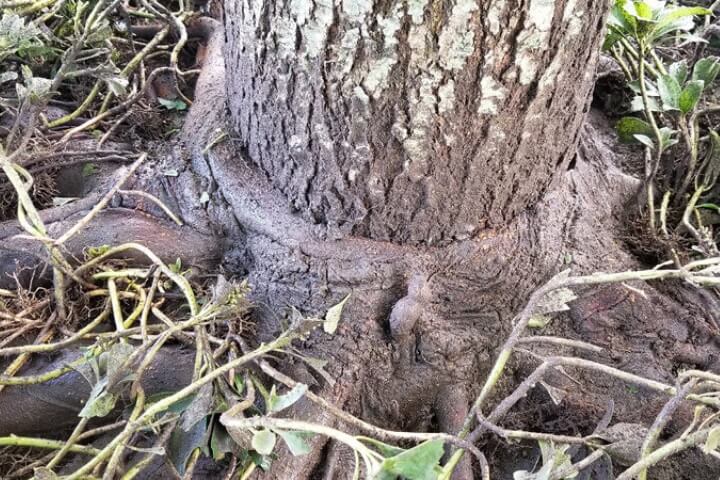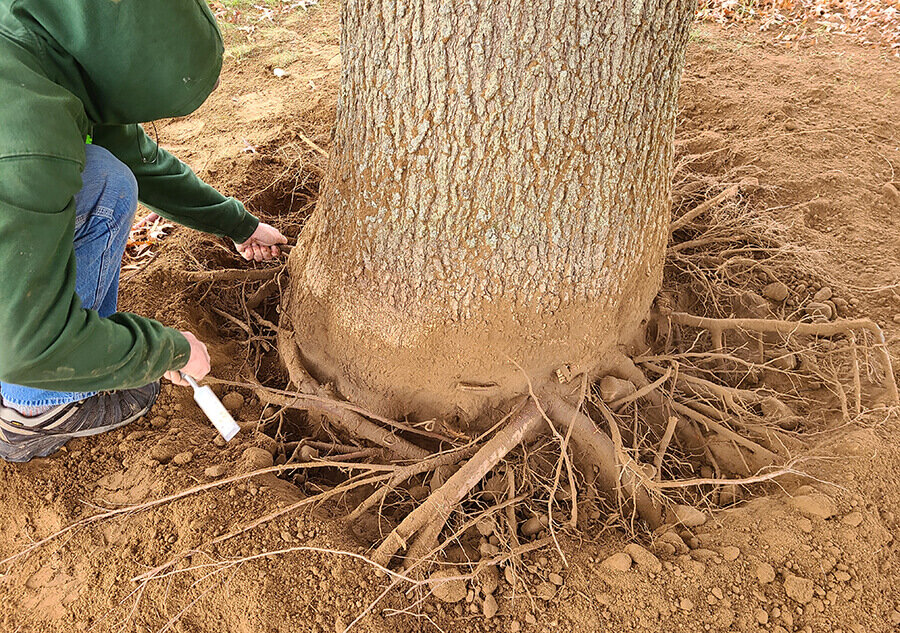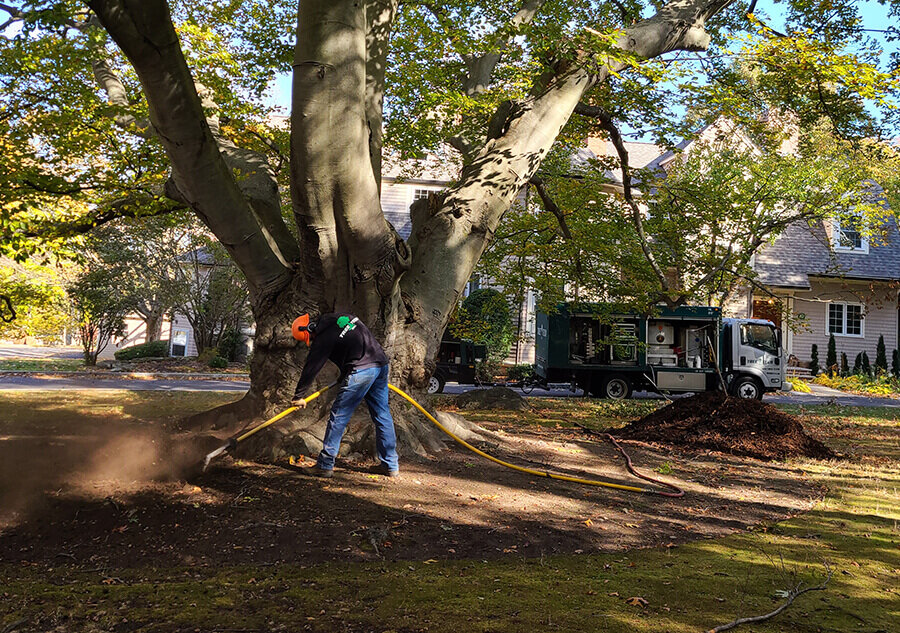
Your trees are only really as healthy as their roots. Unfortunately, there are a lot of different problems that can negatively affect your trees’ root collars – meaning the area where their roots join the trunk. Such problems include girdling roots, soil compaction, and improper planting or transfer techniques.
Today, we want to explore some common root collar disorders, how to recognize them, and what our arborists can do to resolve them. You can’t always avoid such issues, but you can recognize them early on and put a proactive plant health care plan in place.
How Do Girdling Roots Typically Form?
Most of girdling roots form from trees that are root bound in containers at nursery’s. Since the roots cannot expand outward they start to circle the root ball by following the sides of the container. Also, poor planting practices can also cause them or contribute especially planting too deep. In some cases, the grade of the property may have been raised or due to poor mulching practices, bringing the soil higher than is ideal up a tree’s trunk. Whatever the case, all such scenarios are detrimental to tree growth and will likely result in declining tree health.
Typically, we see girdling roots form most in Maples and Lindens, but almost any tree can have them especially if they experienced any of the stressors mentioned previously.
What About Gypsy Moths?
Gypsy moths have been a major problem around here for years now, too. We’ve seen recent outbreaks in 2015-2018, with the population peaking in 2017. News regarding gypsy moths is encouraging as well, if not as definitive as with winter moths. Gypsy moths are also in decline, with the recent outbreak officially ending and most areas in Massachusetts seeing very little in the way of population this year.
This is thanks largely in part to the Entomophaga maimaiga fungus, which kills gypsy moth caterpillars. However, keep in mind that gypsy moth outbreaks are more cyclical than winter moths’, so you can expect to deal with them again at some point in the future.
Signs of Root Collar Disorders
There are a number of signs to look out for which can indicate root collar problems with the trees on your property. Don’t dismiss them as being too minor to deal with right away. The longer you wait to address root collar problems with any trees on your property, the worse off those trees are going to be in the long run. Some common symptoms of root collar disorders include:
- Yellowing leaves
- Early leaf coloration and dropping
- Dieback in the tree’s upper crown
If you’ve read some of our other articles on this site, you’ll realize that these symptoms might suggest a few different problems. That’s just another reason why working with a plant health care professional is so important. You don’t want someone who will simply treat the symptoms. You want someone who can address the root of the problem.
Recognizing Root Collar Disorders
As mentioned above, trees ought to have a visible flare at the root collar. If not, then the tree’s root collar is likely buried, and that means the tree might struggle to move oxygen and carbon dioxide in and out of its inner bark. Basically, the tree is suffocating because its root collar is buried. Plus, the stress of root collar burial predisposes trees to a number of additional problems, such as those caused by secondary invaders like wood-boring insects. Also, the flow of sap is physically cut off over time by a girdling root, limiting the trees ability to move nutrients.

In the case of girdling roots, you might see trunk flare – but it will present abnormally. In fact, with girdling roots, a tree’s trunk flare may actually look narrower than other parts of the trunk. Also keep an eye out for roots that circle around the trunk above the soil. Girdling roots are most common just below the soil line, but they are sometimes visible above ground.
How Tree Tech, Inc. Can Help
First of all, our plant health care professionals have the expertise necessary to diagnose the specific root and soil problems your trees are up against. A proper diagnosis is the first step toward successfully solving the existing problem, and preventing further issues in the future. Once we’ve diagnosed the ailment, we put our expertise to use – along with some specialized equipment we have at our disposal. One of these tools is the AirSpade, which is particularly advantageous when it comes to dealing with compacted soil. This is a tool that uses high pressure air to safely remove soil around tree roots with causing any mechanical damage, unlike traditional digging equipment.

If you’ve got a buried root collar that needs excavating, you don’t necessarily want someone going about it with pickaxes and shovels. The trunk is already compromised and further damage might be done with such tools. Using the AirSpade for excavation or decompacting and soil augmentation through vertical mulching allows us to improve tree health without causing more trouble in the process.
Don’t Let Root Collar Problems Turn Your Trees Into Hazards
In many situations, trees can be salvaged and continue to thrive when their root collar disorders are professionally resolved. In other scenarios, the damage done will be too extensive to save the tree. In those cases, the benefit is that the tree comes down on your terms, not unexpectedly.
But before you can deal with root collar problems of any kind, you need to recognize them. Keep the signs and symptoms discussed above in mind, and don’t hesitate to contact Tree Tech, Inc. with any questions you may have. We’re happy to take a look at your trees for you, and to put a ProActive Plant Health Care Program in place.
Girdling Roots, Soil Compaction, and Other Root Collar Problems in Eastern Massachusetts
Also Serving Rhode Island
Boston | Worcester | Cambridge | Brockton | Quincy | New Bedford | Fall River | Newton | Foxboro | Framingham | Plymouth | Attleboro | Taunton | Hingham | Needham | North Attleboro | Norton | Easton | Franklin | Walpole | Dover | Westwood
Providence | Warwick | Cranston | Pawtucket | Newport | Woonsocket | Cumberland | Coventry | Newport | Johnston | North Kingstown | Bristol | Portsmouth
Home » Girdling Roots, Soil Compaction, and Other Root Collar Problems



